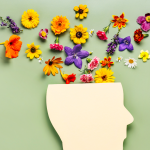Scrolling through feeds and swiping through stories has become an integral part of daily life for everyone, especially adolescents through emerging adulthood (ages 18-29). The influence of social media on our perceptions of beauty and body image cannot be overstated. From flawless filters to perfectly posed photos, platforms like Instagram, TikTok, and Snapchat have become virtual stages where idealized photos are all we know. “Adolescence is a vulnerable period for the development of body image issues, eating disorders, and mental illness,” said Gary Goldfield, PhD, of Children’s Hospital of Eastern Ontario Research Institute. “Youth spend, on average, between six to eight hours per day on screens, much of it on social media. Social media can expose users to hundreds or even thousands of images and photos every day, including those of celebrities and fashion or fitness models, which we know leads to an internalization of beauty ideals that are unattainable for almost everyone, resulting in greater dissatisfaction with body weight and shape,” according to Gary Goldfield, Ph.D.
Social media may have positive effects like expanding your social network, keeping in touch with friends and family, finding like-minded people, being able to express yourself freely, and sharing things that give you joy. However, when your feed floods with an overwhelming amount of unrealistic beauty standards with the culmination of influencers encouraging unhealthy habits, social media can become a toxic environment for everyone.
The Impacts on Mental Health:
Over the years, we have all witnessed how out of hand social media has become. How people completely transform their bodies and faces into something they are not. Social media has created this vicious cycle of doing everything someone can to look “perfect” or fit today’s beauty standards. The over-excessive use of filters and AI-generated photos has made the beauty standard even more impossible to achieve.
For younger generations, it is all they know. They grow up with Snapchat filters on their face at all times, and when they see themselves on a Zoom call, in a normal picture, or the mirror, they are disappointed by what they look like, according to Patrick Byrne, MD. For some, this leaves people with a source of anxiety and feeling ashamed. This anxiety and shame can quickly turn into self-esteem issues or even body dysmorphic disorder. Which is a mental health disorder where you are consumed by thoughts about how you look and the defects you think you see, Dr. Byrne stated.
When one’s self-esteem is affected, it can turn into something much more significant, like unhealthy eating habits leading to eating disorders and unhealthy exercise habits leading to anxiety and or depression. Social media can make anyone feel like they do not measure up, but it can be detrimental for those who have a pre-existing body image disorder. Those who may struggle with body dysmorphia disorder have compulsive thoughts surrounding a non-existent or a very slight defect in their body, according to the International OCD Foundation. These individuals’ symptoms may worsen with the use of social media. These individuals may use social media to reassure their negative thoughts, even though they are aware social media is glamorized.
Unrealistic Beauty Standards:
Social media has allowed adolescents to aspire to look a certain way even when their bodies aren’t fully developed. These completely unrealistic beauty standards have created a world where young children already want to alter their bodies. Now, they grow up with the idealization that they will look like that when they grow up. It leads to dissatisfaction with one’s body when one realizes that the perception of beauty wasn’t real to begin with. When these dissatisfying feelings occur, this can later cause harm to someone’s mental health. The unrealistic standards of what society says is beautiful create pressure among the younger generation to have a “perfect” body or “perfect” face. With the pressure of wanting to achieve an unrealistic body also comes the influencers who promote unhealthy eating and or exercise habits that they claim got them their “perfect body,” or they aren’t honest about plastic surveys that they have received. It creates false hope for young people when they idolize someone who isn’t natural. Social media has already become a toxic environment for everyone and a place where people aren’t allowed to be themselves. People feel the need to glamorize themselves and their lives.
How to Combat Low Self-Esteem and Negative Body Image:
The first step is to accept your body for what it truly is. You shouldn’t just like your body in a specific photo or when you lose weight. Learning to love your body all the time is a great way to move in the right direction. You may ask, how can I do that when I am feeling so low about my body?
- Well, no one is perfect, realizing everyone has flaws, even the people who look perfect on social media.
- Don’t body shame yourself. Remember all the things your body allows you to do. Whether that is your favorite activity, spending time with loved ones, or just being grateful you have an abled body.
- Don’t compare yourself to others. Everyone wants what they don’t have and can never truly enjoy what they do have. “Comparison is the thief of joy” – President Theodore Roosevelt. Find things you love about yourself and acknowledge them.
- Accept compliments! It may be challenging to realize someone may like something about you when you aren’t feeling good about yourself. But don’t shoo off a compliment; embrace them.
- Treat yourself with kindness! Use positive self-talk to enhance your perception of yourself. Turn your negative thoughts into positive ones. Complementing yourself is very empowering and will help you see yourself in a positive light.
- Follow influencers or professionals who promote body positivity, positive self-psychology, and positive daily affirmations. You can change what you see on your social media. You just have to follow the right people!
These tips are a great starting point for anyone struggling with the adverse effects of social media and body image, from adolescents to adults. These are just a few ways to boost your self-esteem and love your body image!
Creating a healthy environment in every aspect of your life may be difficult when social media is filled with unhealthy body standards. But you can control this by limiting your social media screen time and following empowering, body-positive influences. Making your social media space as healthy as possible can greatly benefit you and help you combat the adverse effects of body image.
References:
https://www.apa.org/news/press/releases/2023/02/social-media-body-image
https://health.clevelandclinic.org/social-media-and-body-image
https://standard.asl.org/17556/opinions/unrealistic-body-standards-create-toxic-environment/



